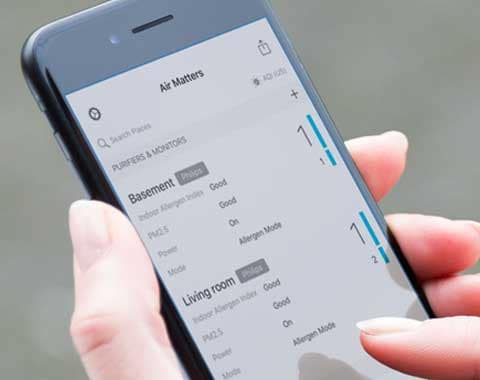Caring for a child with asthma
Confidence that your child’s asthma is in control
Caring for a child with asthma can be a scary and stressful experience. Watching them struggle to breathe when their asthma flare up, soothing their disappointment when asthma symptoms prevent them from being as active as they want. Wondering if they are taking their medication correctly when you aren’t around. Asthma management may help you manage your child’s symptoms so you can find more peace of mind and your child can get back to just being a kid.
Ask your healthcare professional about asthma products that could help your child

Your child’s healthcare professional can be a valuable resource for understanding the use and benefit of including asthma management devices as part of a treatment plan. Our handy guide outlines the kinds of devices available, so you can lead the discussion and learn more.
InnoSpire Go
Portable mesh nebulizer
More time for life
Fast, effective and easy to use, the InnoSpire Go portable mesh nebulizer is designed to shorten asthma treatment time by 25%1, so your medication can be delivered in as little as four minutes2. Virtually silent, InnoSpire Go is small, portable, discreet and can be used anywhere.

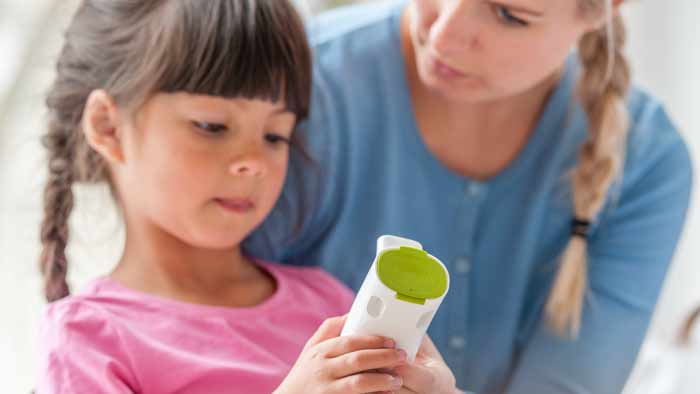
Designed for your life
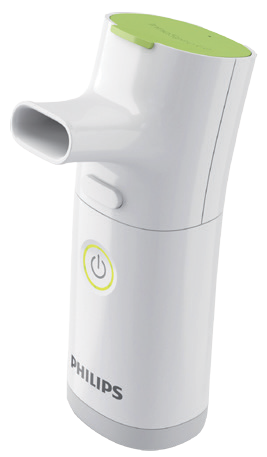
Indoor Air quality matters
Take control of the indoor air
With 24,000 breaths taken every day, the air in our homes can impact our lives. Better air quality can help prevent or alleviate allergies, asthma and respiratory issues, so we can all breathe a little easier. Philips Air solutions reduce four major factors that influence indoor air quality : Allergens – such as pollen coming in from outdoors, dust mites, pet dander (flakes of skin) and mold spores. Air humidity or dry air – this can aggravate allergies, asthma and other respiratory conditions.
Air in our homes is often 2–5 times more polluted than outdoor air. Everyday activities — like cooking, cleaning and playing with pets — all release allergens and air pollutants into the home.
PM 2.5 – the microscopic air pollutants that are common triggers for an asthma attack.
Air Purifiers:
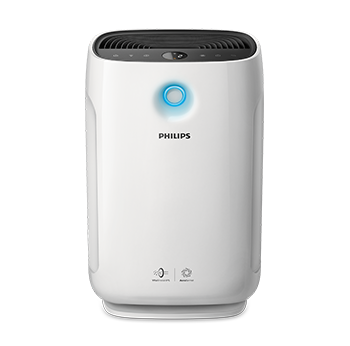
Philips Air purifiers remove 99.97%1 of airborne allergens including pollen, house dust mites and pet dander2.
Certified by authorities such as AHAM, ECARF.
Thanks to exclusive AeraSense technology, a particle sensor that detects even a slight change in the air and ensures the purifier’s settings are adjusted to reduce airborne allergens.
1 Particles between 0.3 and 10 microns 2 Tested on the filter media for 1 pass efficiency at 5.33cm/s air flow, by a third party lab.
Air Humidifiers:
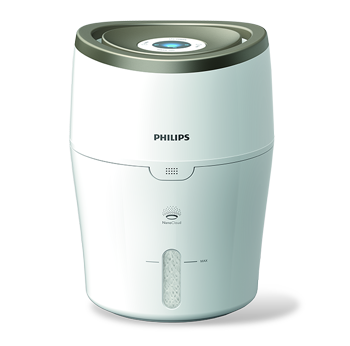
Philips Air humidifiers retain comfortable moisture levels in your home by maintaining a constant and even, relative humidity between 40% and 60%.
Philips Air humidifiers spread 99% less bacteria compared to ultrasonic humidifiers3 thanks to exclusive NanoCloud Technology.
They distribute the humidified air in the room evenly.
3 Compared to standard ultrasonic technology (non warm mist), Philips NanoCloud technology emits up to 99% less natural bacteria into the air, as tested for 8 weeks in a 1m3 chamber, and certified in an independent laboratory benchmark study by Rabe HygieneConsult in June 2012 (Rabe Hygiene Consult 2101p_12.116).
2-in-1 Air Dehumidifier & Purifier:
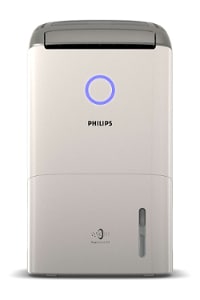
Philips 2-in-1 Air dehumidifier and purifier reduces moisture and allergens for a drier, healthier home.
Philips 2-in-1 Air dehumidifier and purifier filters ultra-fine particles as small as 0.02 microns4 thanks to NanoProtect filter.
Get real-time feedback from the air quality indicator and digital humidity display.
4 The filter was tested with NaCl test aerosol according to DIN71460-1 in IUTA
In order to get more tips on how to manage your child's asthma at home and school, see below:
Managing asthma in children
Pediatric inhaler spacers for effective medication delivery3
It’s often difficult for children to use an inhaler or puffer correctly because the canister needs to be pressed at the same time as they breathe in. The medicine comes out of the inhaler very quickly so, if a breath is not taken at the right time, medicine often ends up in your mouth, throat and stomach when using an inhaler on its own. A valved holding chamber may improve drug delivery to the lungs where it is needed by as much as up to 4 times4. Using a valved holding chamber may reduce the risk of inhaler side effects3, 5, 6, 7, 8, 9, 10 ,11.
Peak flow meters may be used to track your child’s airflow
Peak flow is a measure of how fast your child can blow air out of his or her lungs. If their asthma symptoms are under control they should be able to blow air out quickly, which will give a high peak flow measurement. Peak flow is measured using a small handheld device called a peak flow meter like Philips Personal Best peak flow meter. Daily peak flow monitoring can help you to determine whether your child’s condition is stable or worsening. Then, in conjunction with the prescribed asthma action plan, you can take appropriate steps to bring their asthma back under control12.
Child friendly aerosol facemasks
Babies and some young children can’t properly use the mouthpiece of an inhaler spacer or nebulizer and need to use a facemask. It is important that the facemask fits comfortably on the face, providing a good fit, to help them receive the proper dose of inhaled medication. Philips LiteTouch mask with its soft sculpted seal contours to a patient's facial landscape making it easy to fit with less discomfort13.
Nebulizer treatment specially designed for kids
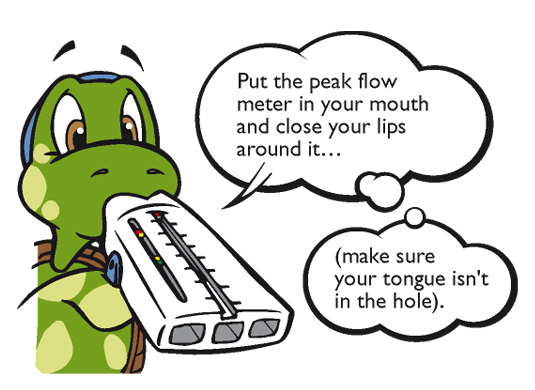
Sami the Seal kidzone
Asthma games and activities for your child
Have fun with Sami the Seal and his friends as they show you how to take your asthma medicine
Breathe easier at home
The quality of the air inside your home can have an impact on your child’s asthma symptoms. Our air purifier products are designed to help you manage the level of allergens you and your family are exposed to, keeping your home clean and healthy.
Frequently asked questions
DISCLAIMER:
Information on this website is informational only and should not replace the advice of a physician.
FOOTNOTES: [2] Using 2.5ml salbutamol [3] Asthma.org.uk. Advice/inhalers medicines_treatments/inhalers-and-spacers. Accessed January, 2016 [4] Gardenhire D., Arzu A., Dean H., Myers T. A guide to aerosol delivery devices for respiratory therapists 3rd edition, American Association for Respiratory Care, 2013. [5] Salzman G., Pyszynski D. Oropharyngeal candidiasis in patients treated with beclomethasone dipropionate delivered by metered-dose inhaler along and with Aerochamber. Journal of Allergy and Clinical Immunology, 1988; Volume 81, Issue 2: 424-428. [6] Derendorf H., Nave R., Drollmann A., Cerasoli F., Wurst W. Relevance of pharmacokinetics and pharmacodynamics of inhaled corticosteroids to asthma. European Respiratory Journal, 2006; 28:1042-1050. [7] Roller M., Zhang G., Troedson R.G., Leach C.L., Le Souëf P.N., Devadason S.G. Spacer inhaler technique and deposition of extra fine aerosol in asthmatic children. European Respiratory Journal, 2007; 29:299-306. [8] Von Hollen D., Slater L., Hatley RHM. Impact of flow rate on NGI throat deposition from 3 HFA Inhaler formulations with anti-static valved holding chambers. Journal of Aerosol Medicine and Pulmonary Drug Delivery, 2013; 26(2); A45-A46. [9] Oliveira R. F., et al. VHC performance evaluation at constant flow: 30L/min. Proceedings of the ASME2015 International Mechanical Engineering Congress and Exposition, 2015 Houston Texas. [10] Leach C., Colice G. A Pilot Study to Assess Lung Deposition of HFA-Beclomethasone and CFC-Beclomethasone from a pressurized Metered Dose Inhaler with and without add-on spacers and using varying breath hold times. Journal of Aerosol Medicine and Pulmonary Drug Delivery, 2010; 23(6):355-361. [11] Dickens G., et al. Pharmacokinetics of flunisolide administered via metered dose inhaler with and without a spacer device and following oral administration. Annals of Allergy, Asthma & Immunology, 2000; Volume 84, 528-532. [12] Asthma.org.uk. All_about_asthma/controlling_your_asthma/resources_to_help_you/peak_flow_diary. Accessed January, 2016
[1] Versus predecessor device Aeroneb Go.
[13] Tong, K. et al. An Instrumented Valved Holding Chamber with facemask to measure application forces and flow in young asthmatic children. Journal of Aerosol Med and Pulm Drug Del. 2014; 27 (Suppl 1): S55-62.
You are about to visit a Philips global content page
Continue




